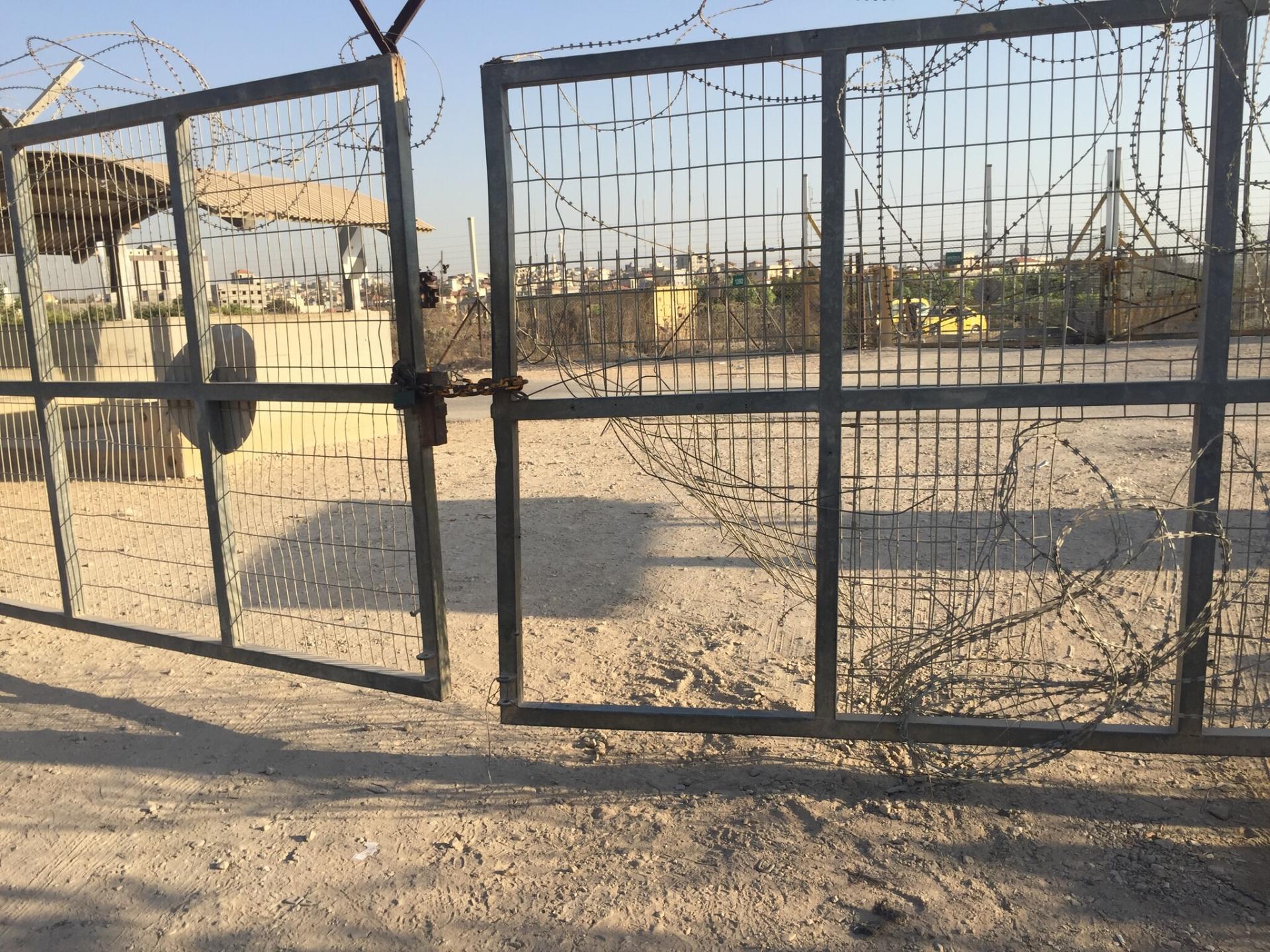A breach in the gate at Habla Checkpoint
We set out in a car loaded with clothing and other items for Z.’s renovated shop in ‘Azzun. He moved to a new house because S., his wife, complained their previous apartment was insufficiently airy. The new apartment is spacious, directly across from the shop. The birds that were raised lovingly in the previous apartment are gone. Z. says they escaped…
The new shop is still being set up. The sons are helping, though at the moment the oldest is still asleep. Z. asked us to bring the goods to the apartment. He looks tired, recovering from his fall from the scaffolding which injured his back. His work permit was rescinded; his oldest son is still blacklisted.
Upgrading of ‘Azzun’s streets continues. The town is quiet.
We leave to visit A. at the plant nursery. He says the soldiers at the checkpoint are nice, but they’re consistently late opening the gate. When we reached the checkpoint we understood why: the fence is still full of gaps and people pass through on foot in both directions. Only vehicles have no choice but to wait for the gate to open.
Today the soldiers arrived on time; in fact, they were early but remained in their air-conditioned vehicle until 13:40.
Palestinians are required to pass through the barrier in the morning, but not in the afternoon. The soldiers really are friendly, willing to chat with Rony who’s curious about them. They say approximately fifty vehicles cross in the morning, but in the afternoon we saw only about ten going in either direction. Rony asks why they don’t repair the fence; the soldiers say it costs money and the Palestinians cut it again. That’s not completely true – we think the army simply doesn’t care. It’s the same at almost all the checkpoints.
People on foot don’t wait for the gate to open. We met a man who’d come from Nazareth to pick up a motor for one of his machines. He’d asked around and found the cheapest one in Qalqilya. The seller brings it to the checkpoint. At first, he said he’d wait for the gate to open in order not to get into trouble, but his patience ebbed and he crossed through the gap, returning shortly carrying the motor. He suggests we enter Habla through the gap; we politely refuse.
A young man, about twenty, smiling, friendly, arrives in his father’s car. He’s curious about us. We tell him about ourselves.
We left before the gate closed; nothing was happening anyway.

